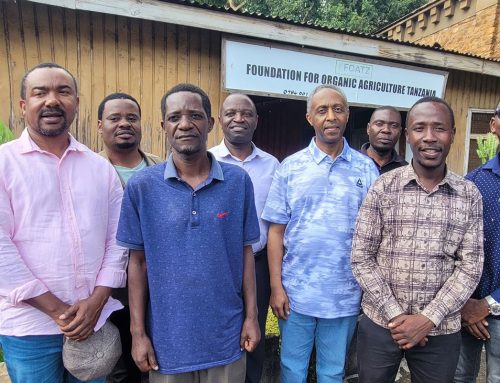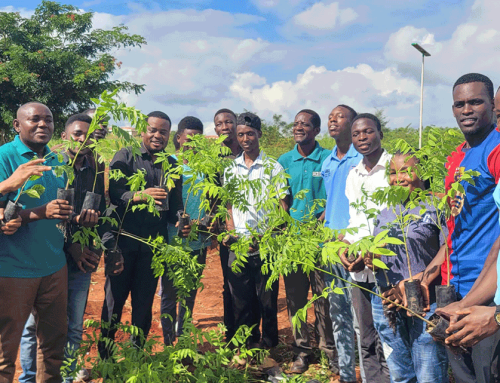Mwere B Primary School students gather for a lesson on organic agriculture. Mr. Leonard Chapi, a field officer from the Foundation for Organic Agriculture Tanzania, facilitates the session. The aim of his program is to instill in young minds an appreciation for sustainable farming practices that benefit both people and the environment.
Mr. Chapi begins by explaining what organic agriculture entails—farming without synthetic fertilizers or harmful chemicals, instead relying on natural methods to enrich the soil and protect crops. Using vivid illustrations and engaging discussions, he highlights key advantages of organic farming, such as:
- Health Benefits: Organic produce is free from harmful pesticides, ensuring safer and healthier food for families.
- Environmental Protection: Organic farming conserves soil fertility, protects water sources, and reduces pollution, fostering a sustainable ecosystem.
- Economic Opportunities: Organic products often fetch higher prices, providing farmers with better incomes and uplifting rural communities.
- Biodiversity Conservation: By avoiding chemicals, organic farming supports the survival of beneficial insects, birds, and microorganisms.






